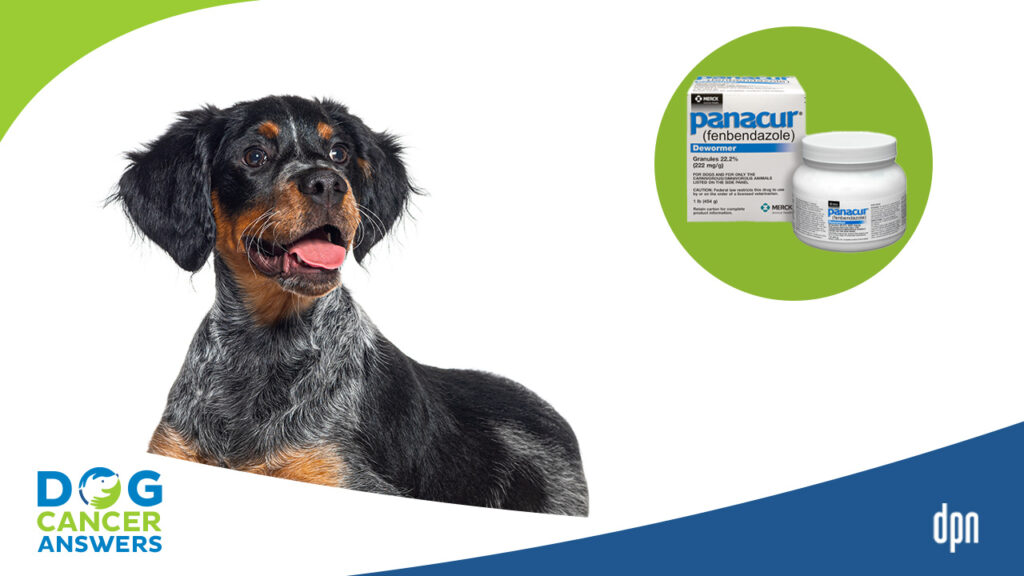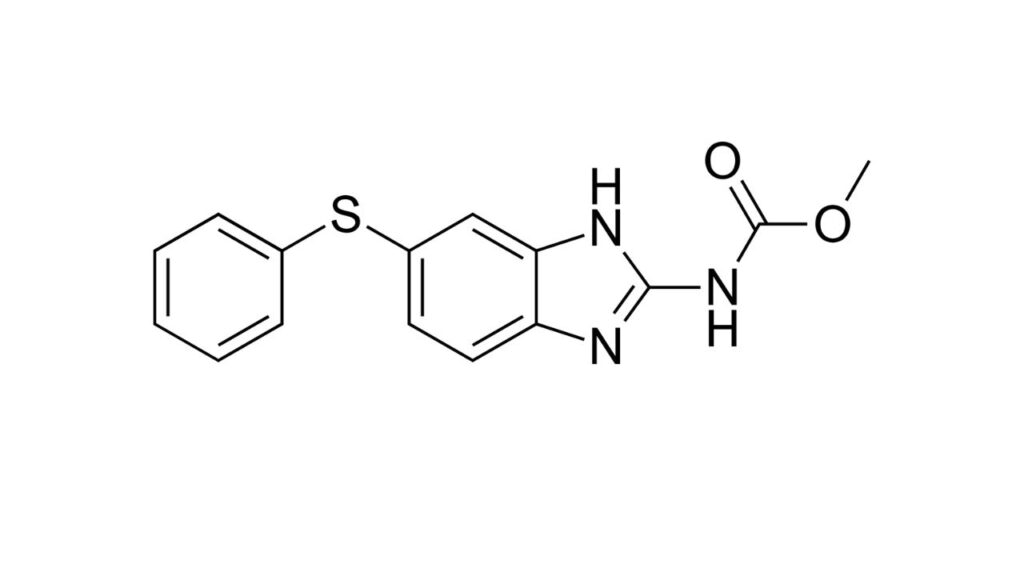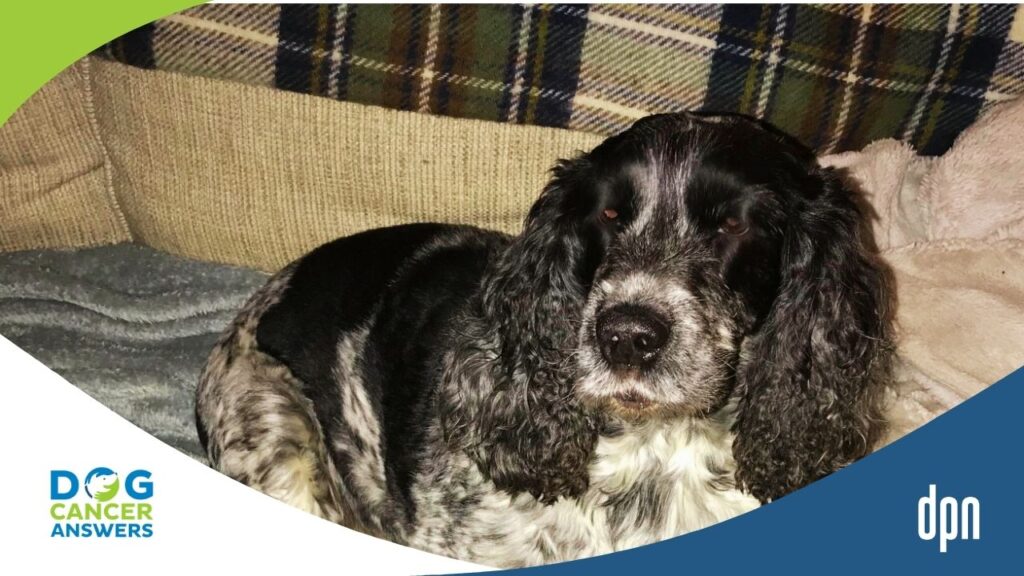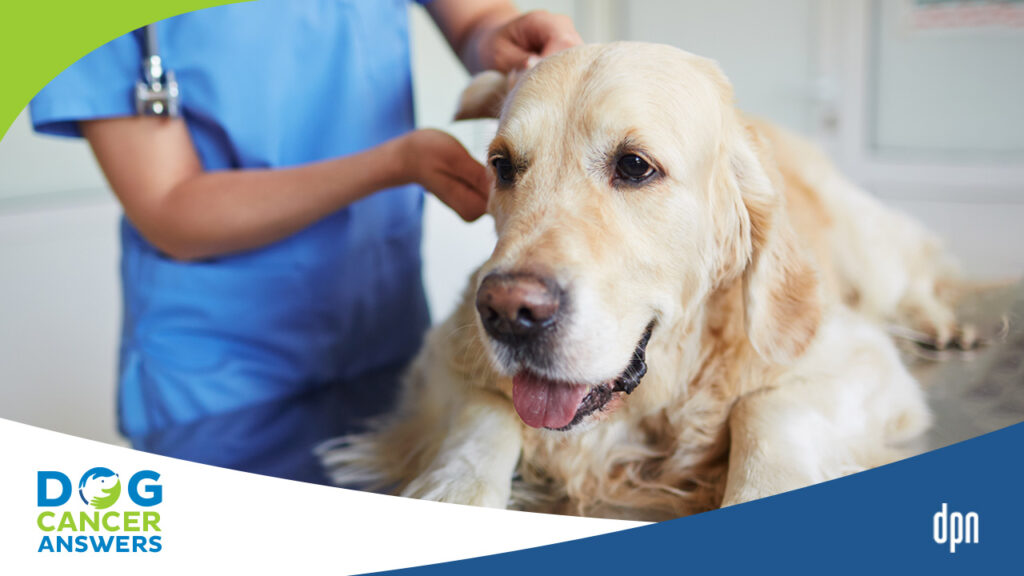EPISODE 151 | RELEASED January 24, 2022
Stage 3 Melanoma in Dogs: What Can We Do Next? | Dr. Nancy Reese Q&A
Caller Shirley’s dog has Stage 3 oral melanoma and she is trying to find their next treatment option.
SHOW NOTES
Oral Melanoma is one of the more aggressive cancers in dogs. The gold standard of treatment for this cancer is radiation to shrink the tumor, followed by the canine melanoma vaccine to train the dog’s immune system to attack the cancer cells. But what do you do when this treatment fails?
Dr. Nancy Reese discusses the typical treatment progression for oral melanoma, as well as some additional therapies that might be beneficial for added support.
[00:00:00] >> James Jacobson: Today’s show is brought to you by the bestselling book, The Dog Cancer Survival Guide: Full Spectrum Treatments to Optimize Your Dog’s Life Quality and Longevity. It’s available everywhere books are sold in both paperback and digital editions and on the publisher’s website at DogCancerBook.com. Use coupon code PODCAST on that website to get 10% off The Dog Cancer Survival Guide today.
[00:00:29] >> Dr. Nancy Reese: But honestly, my opinion with thinking in this really aggressive type of tumor that has outwitted the melanoma vaccine, which is, seems so much more promising, and, uh, it’s, it’s evaded the, the radiation, which is such a strong treatment, my feeling is the Panacur would not be, you know, it might be a supportive thing, but I, I just wouldn’t hold out great hope that it would really help with metastasis.
[00:00:55] >> Announcer: Welcome to Dog Cancer Answers, where we help you help your dog with cancer. Here’s your host James Jacobson.
[00:01:04] >> James Jacobson: Hello friend. Today’s episode is a question and answer show featuring a call that we received on our Listener Line about a dog with oral melanoma. To answer this caller’s question we have once again, our medical editor, Dr. Nancy Reese. Dr. Nancy has been practicing veterinary medicine for over 30 years now. And as if that wasn’t enough, Dr. Nancy also has a Master’s degree in Preventative Veterinary Medicine and a PhD in Epidemiology for good measure. Best of all, Dr. Nancy loves sharing her knowledge and compassion with all of us dog lovers. Once again, Dr. Nancy, thank you so much for being with us.
[00:01:47] >> Dr. Nancy Reese: Nice to be back. Your listeners always seem to have some good challenging questions. So it’s always a good discussion with you.
[00:01:55] >> James Jacobson: Well, I think you will enjoy this question from Shirley in Arizona who has a rescue dog. Let’s listen.
[00:02:01] >> Shirley Burns: Hi, my name is Shirley Ernst and I live in Arizona.
I have uh, a rescue dog. She’s probably 11, 12 at most. She has been diagnosed with oral melanoma. I have been doing, uh, the radiation, the three days radiation.
And then also she already got the, the fourth vaccines, and I have been, you know, doing the diet and, um, a lot of natural stuff, colostrum, CBD, transfer factor, et cetera.
And now she has the cancer in the mouth and also in the lymph nodes. When she was diagnosed, she was stage three. So like a week ago, I started to feel like her lymph nodes are getting bigger. And I went to the oncologist and they took an x-ray and seems like she has a little tumor in her lungs. So I just want to have an advice what I can do next because, you know, despite all, everything that I have been done, so it seems like the stupid melanoma is not stopping. And I was reading about Panacur and, uh, well, I just want to ask for any advice, because, uh, according to oncologists, the only option that I have is to do chemo. And she said that I only have 30% of chances.
Thank you so much.
[00:03:37] >> James Jacobson: Stupid melanoma. I like that. And it’s probably how a lot of people feel when they’re grappling with cancer. Stupid melanoma. Dr. Nancy, this sounds like it’s metastasizing. What are your thoughts for Shirley?
[00:03:51] >> Dr. Nancy Reese: Yeah. Well, I’d have to agree with you of stupid melanoma because it is, especially the oral ones, they’re just really awful tumors. And not that there’s a lot of good tumors out there, but, but some are certainly worse than others and you can see all the things that she has done. She’s done the best possible treatments between the radiation and the vaccine, which when the vaccine came out it really made us excited, but obviously it isn’t a hundred percent effective in all cases.
And it’s just such an aggressive cancer that despite those best efforts, unfortunately it seems to have spread to the lymph nodes and presumably the lungs as well. So I, like I said, just, I think she wrapped it up with the best saying stupid melanoma.
[00:04:38] >> James Jacobson: I think that’s so true. So the oral melanoma vaccine, let’s talk a little bit about that and the idea of using both the vaccine and the rounds of radiation.
[00:04:51] >> Dr. Nancy Reese: Yeah, so the, the radiation helps to shrink the size of it overall. So it’s, it’s a pretty good treatment in terms of getting rid of the bulk of the mass that’s in the mouth. Uh, the melanoma vaccine, I think it was kind of one of the first vaccine types of things we had for cancer.
So again, super exciting. And they actually, uh, make it from a human version of a component that stimulates the dog’s immune system to fight the cancer. So it’s kind of one of these interesting ones where the humans are actually helping the dogs. Whereas usually most of the things are the dog studies help the human, so yay for us helping dogs.
[00:05:30] >> James Jacobson: One Health. We like this One Health, One Health thing.
[00:05:32] >> Dr. Nancy Reese: Yes, we do. Yeah. So the, the idea of the vaccine is to, again, we’re always looking for those ways to get the body’s own immune system to attack the cancer. ‘Cause that’s what the body tries to do in general. You know, we’re always fighting off things. I mean, there’s probably so many things that happen to a dog or a human on a daily basis that could have run rampant and caused problems.
But our immune system has effectively dealt with it. So, you know, some cancers never get started because the immune system can, can go after it. So once the tumor is already there, the idea is to supercharge the immune system to attack that particular cell type and try to reduce the, uh, the effects of it. But again, unfortunately it’s not, not sometimes a full-blown cure.
[00:06:19] >> James Jacobson: Well as a, I think you have your PhD in epidemiology, right?
[00:06:23] >> Dr. Nancy Reese: Yes.
[00:06:23] >> James Jacobson: Yeah. So, I mean, vaccines are something that people talk about a lot these days, just to make sure, ’cause we’ve covered this before in Dog Cancer Answers, but this vaccine is not something you do as a preventative-
[00:06:34] >> Dr. Nancy Reese: Correct.
[00:06:35] >> James Jacobson: It’s something you do once you have the diagnosis.
[00:06:37] >> Dr. Nancy Reese: Right. Right. It’s very specific to, you know, train the body to go after those types of cells and the normal, uh, melanin or pigment containing cells that exist in the body. I mean that’s what causes, you know, things like freckles or black pigment or the black spots in dogs’ tongues, they have melanocytes, which are the melanin containing cells.
But when those cells go rampant and turn into cancer, they become the melanoma and those cells react a little differently than normal melanin cells. So the vaccine helps to target the abnormal ones and get the body to fight off the cancer that way.
[00:07:14] >> James Jacobson: So going back to that first question I posed, clearly, uh, Shirley sounds like she’s a Type A personality based on our personality structure.
So she’s doing everything she possibly can. Is it pretty common in a situation like this to use both radiation and the vaccine?
[00:07:31] >> Dr. Nancy Reese: Ah, yes. It’s definitely not uncommon depending on what resources that particular, uh, guardian has available to them. So some people are so against radiation that they would not consider that and they might just use the vaccine, or they might try to surgically remove as much of the tumor as they can if it’s in a area that that’s possible. So you might do surgery and then the vaccine afterwards to try to prevent the metastasis.
[00:07:59] >> James Jacobson: So the metastasis that she is seeing now, you know, in terms of going into the lymph nodes and seeing it in the lung, just pretty much textbook.
[00:08:08] >> Dr. Nancy Reese: Yeah.
Uh, unfortunately that’s, that’s just, it’s just such an aggressive type of tumor that it is not uncommon to have it continue to spread despite the best efforts.
[00:08:18] >> James Jacobson: Well Shirley asked about Panacur. I want to get into that right after the break. We’ll be right back.
So one of the things that Shirley asked about was Panacur that she’d been reading about. What are your thoughts on that? Her oncologist says that, you know, just stick with chemotherapy, but what are your thoughts on Panacur? And what is Panacur?
[00:08:39] >> Dr. Nancy Reese: Good question there. Yeah. The oncologist, I think mentioned chemo was the best option and, uh, but still only gave it a 30% chance.
And I think that’s, yeah, that, that’s very realistic because it just, it’s not one of the most chemo-responsive cancers, you know, something like lymphoma, we can say, wow, a lot of lymphomas do very well with chemo. Melanoma, it’s just not as effective anyhow. So, you know, we’ve already got a cancer that’s spread multiple places so that the chemo is, is a tough option when you’ve only been given 30% odds. Panacur’s a brand name.
And so the drug is Fenbendazole, that’s in it. And a lot of people have probably heard of that, or maybe even had their dog on Panacur at one point or another, because it started out as a dewormer, and it works for – yeah, bizarre things that, you know, how we started trying to use dewormers for cancers.
[00:09:34] >> James Jacobson: And other things.
[00:09:34] >> Dr. Nancy Reese: I haven’t quite put that connection. Yes, and other things. So it’s pretty amazing. And this whole concept of using existing drugs for cancers, I find fascinating. There’s a whole, uh, subject they call it the repurposing of drugs. So they’re looking at drugs that have been used for other things like deworming or, you know, certain antibiotics and things.
They go back and find that some of these drugs truly have anti-cancer effects. And I think that’s just a testament to the fact that we cannot seem to come up with truly things that cure cancer. So people are desperately looking for, outside the normal realm and trying to find drugs that have, uh, at least some benefit. And with Panacur, or Fenbendazole, that, that class of drugs, they actually have several effects that could potentially affect cancer.
It seems to, uh, sort of stimulate the p53 gene, which is the tumor suppressor gene. And who doesn’t want a tumor suppressor gene to be, you know, charged up when you’ve got cancer. Um, so it, it seems to have some effect on that. It also seems to affect some things called microtubules, which is one of the ways that cancer tries to spread, by forming these microtubules. So the Fenbendazole seems to have an effect on cutting off that signaling pathway. And then there’s some other pathways that affect apoptosis, the Panacur seems to stimulate, so you’re, you’re causing potentially some cell suicide, like we all want cancer cells to do. And so it seems like in test tubes, the Panacur seems to work pretty well against – well, I shouldn’t say well – it has some effect on some human melanoma cells.
And it’s fascinating work, and I think it’s a possible supportive type of thing. But honestly, my opinion with thinking in this really aggressive type of tumor that has outwitted the melanoma vaccine, which is, seems so much more promising and it’s evaded the, the radiation, which is such a strong treatment, my feeling is the Panacur would not be, you know, it might be a supportive thing, but I, I just wouldn’t hold out great hope that it would really help with metastasis. Unfortunately. I mean, I, you know, I’m, I’m all for trying things because the odds are so bad and, and Panacur is a pretty low risk drug. It doesn’t have significant side effects. I think I did see one case of a human dosing himself and they caused some liver problems. But, you know with the, with proper dosing, I think you can do it safely in a dog.
[00:12:10] >> James Jacobson: We humans like to use pet dewormers. Do-
[00:12:13] >> Dr. Nancy Reese: Yes we do.
[00:12:15] >> James Jacobson: Uh, so Shirley’s, you know, basically her oncologist said, let’s stick with the chemo. Your thought is the onc is probably right. Let’s stick with that on this. However, it sounds like Shirley is also doing these other, a variety of things in terms of diet and CBD and supplements, good stuff to be doing for that quality of life for her pup.
[00:12:34] >> Dr. Nancy Reese: Absolutely. I think, again, all those things help support quality of life. And, and as we’ve mentioned before, I mean, sometimes that, if they can maintain a quality of life, even if they still have cancer, that’s an, a desirable goal as well.
[00:12:49] >> James Jacobson: Awesome. Well, Dr. Nancy Reese, thank you so much for your input on Shirley’s dog.
[00:12:55] >> Dr. Nancy Reese: Well, I hope that something helps this dog ’cause it’s a really tough diagnosis to get.
[00:13:02] >> James Jacobson: And thank you listener. Oral melanoma is one of the tougher cancers that can attack our dogs. And as Dr. Nancy went over, treating it often requires aggressive tactics, just like the ones that Shirley and her dog pursued.
If your dog has been diagnosed with oral melanoma or with any other cancer, we welcome you to join us on our support group. You can find that at DogCancerSupport.com. That’s DogCancerSupport.com. It is a vibrant community of dog lovers going through the same hardship. You can find links to the resources mentioned in today’s episode in the show notes.
And you can find those at DogCancerAnswers.com. Also, if you have a question that you would like answered on a future episode of Dog Cancer Answers, well, just give us a call on our Listener Line and you can do that at (808) 868-3200. That number again is (808) 868-3200. It is a recorded line available to you 24 hours, seven days a week.
Well, that is all for today’s show. I’m James Jacobson. And from all of us here at Dog Podcast Network, I’d like to wish you and your dog a very warm, Aloha.
[00:14:30] >> Announcer: Thank you for listening to Dog Cancer Answers. If you’d like to connect, please visit our website at DogCancerAnswers.com or call our Listener Line at (808) 868-3200. And here’s a friendly reminder that you probably already know: this podcast is provided for informational and educational purposes only.
It’s not meant to take the place of the advice you receive from your dog’s veterinarian. Only veterinarians who examine your dog can give you veterinary advice or diagnose your dog’s medical condition. Your reliance on the information you hear on this podcast is solely at your own risk. If your dog has a specific health problem, contact your veterinarian.
Also, please keep in mind that veterinary information can change rapidly. Therefore, some information may be out of date. Dog Cancer Answers is a presentation of Maui Media in association with Dog Podcast Network.
Hosted By
SUBSCRIBE ON YOUR FAVORITE PLATFORM
Topics
Editor's Picks
CATEGORY











